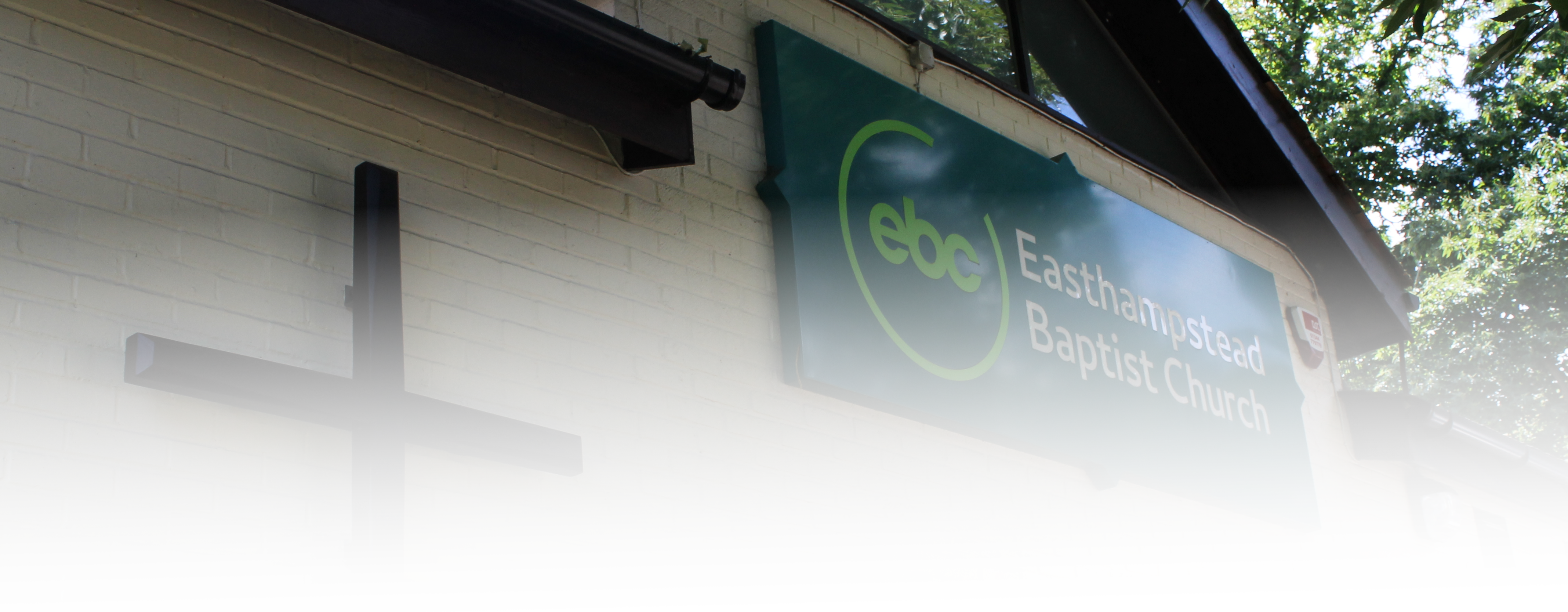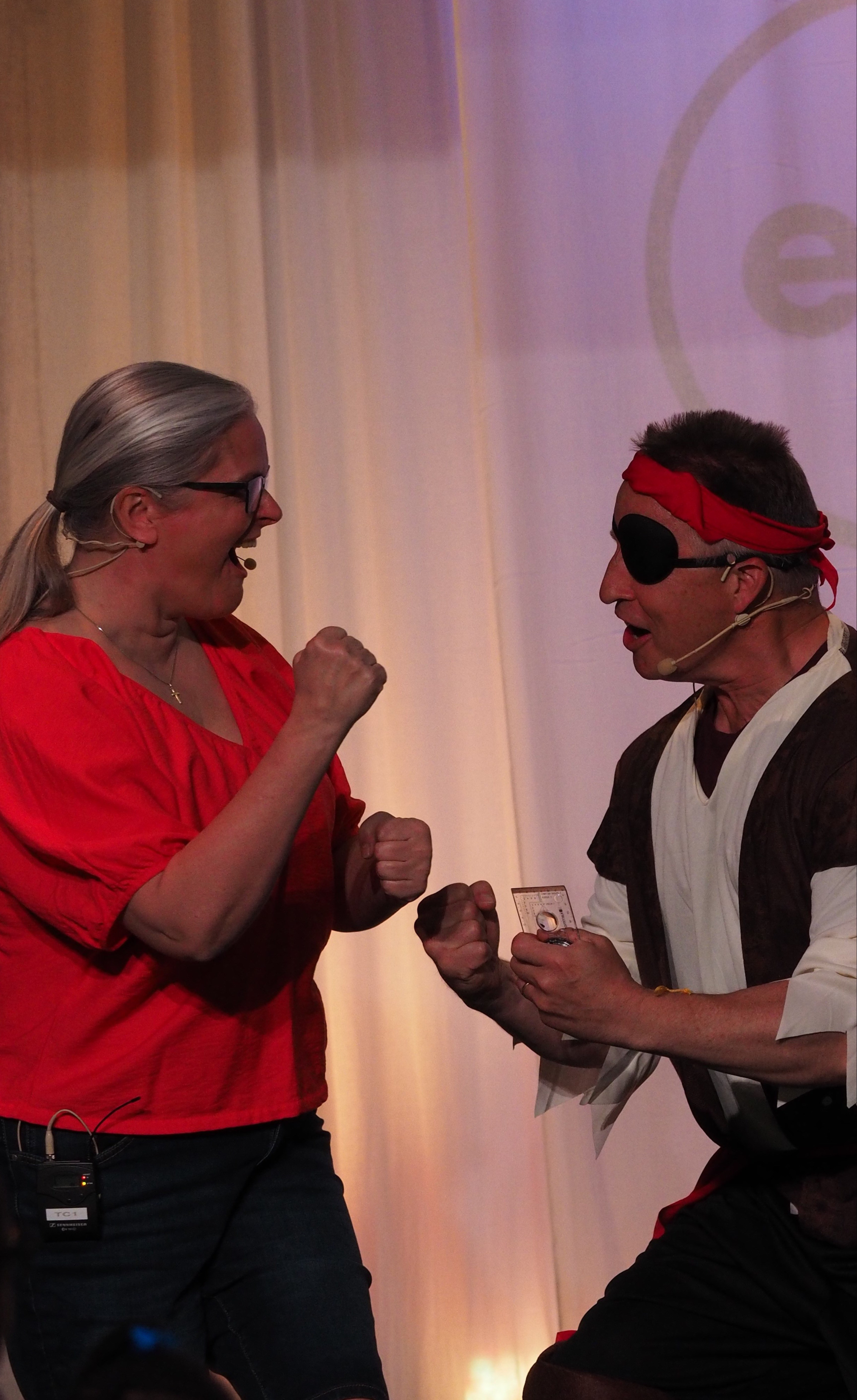
I am New
Welcome from all of us at Easthampstead Baptist Church!
Thank you for taking the time to learn a little more about us. As you explore our website, we hope that you catch a broader glimpse of what EBC is all about. It's about people - people just like you - who want to embark on a journey to discover more of God and his will for our lives.
What should I expect on a Sunday Morning?
Sometimes going to a church for the first time can be a little daunting. I promise we won't bite! To help ease any uncertainties below are the answers to some common questions people have before attending a Sunday morning.
What do I have to wear?
We are a 'come as you are' sort of people and have no formal dress-code for our Sunday services.
We can assure you that we don't have bouncers on the door vetting your attire!
If you are still not sure, feel free to check out our services on YouTube to have an idea.
What time do I need to be there?
At the moment we have one Sunday morning service which starts at 10.00am.
On the 4th Sunday of the month we run our All-sorts service which starts at 10:00am.
Check out our other services below!
|
 |
We would recommend you turn up 10 minutes before the service starts so you have a chance to say hi!
If you have children that need signing in to the children and youth work, they need to be signed in from 9:50am.
Parking
There is plenty of parking both out the front and at the back of the building. Just follow the signs!

|
How safe is my child in your care?
We run separate children and youth work during our 10:00am service, which is run by a group of volunteers who have all been DBS checked.
Children ages 11 and under must be signed in and out by their parent/carer. The youth can sign themselves in and out.
|
For information about our safeguarding policy click here